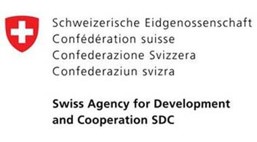Farmers in Kayonza Cherish their Participation in Decision Making for Agricultural Development Projects
 Photo : Members of Imbereheza Cooperative preparing a plot to construct a greenhouse expected to increase the production of fruits and vegetables
Photo : Members of Imbereheza Cooperative preparing a plot to construct a greenhouse expected to increase the production of fruits and vegetables
Farmers in Districts of Kayonza and Nyanza in Rwanda have expressed great joy over the creation of the GPSA`s committees of farmers’ representatives, who have, in many cases, raised issues and challenges affecting farmers and voiced towards their participation in the planning, implementation and evaluation of the district’s performance Contracts “Imihigo”.

According to the President of Imbereheza Cooperative, these committees created under the GPSA Project have also been very instrumental in changing farmers’ mindsets to move from subsistence agriculture to commercial due to skills they acquired through the training they have got. The cooperative is now constructing a greenhouse worth over Rwf7 million (USD 7,000) expected to increase the production of vegetables and fruits.
“Following the advocacy on the needs of farmers, the District constructed a big modern maize drying facility for us. This facility came at a perfect time because it will help us combat aflatoxin that in some cases leds to the loss of our crop production” says Jeannette Uwamariya a farmer in Kabare Sector.
“In the past, our cooperative could reap only 500Kg of maize but now we are reaping over four tones from the same land,” the president of the cooperative testifies. “We also hope to continue increasing our agricultural production because the government has constructed terraces in our sector and it was one of the priorities that we as farmers had submitted to authorities.
How Farmers’ Committees help to increase farmers` participation in decision making through Imihigo cycle
As the surefire way to increase their participation in the whole cycle of planning, implementation and evaluation of the districts’ Imihigo, Transparency International Rwanda (TI-RW) together with Imbaraga Organization in Kayonza District bring the farmers together in their groups and cooperatives to select their priority needs to be submitted to the district.
In Kayonza, GPSA project works with 3285 farmers organized into 128 small groups. At the sector level farmers are represented by a committee of ten (10) farmers and three (3) farmers at the District level.


“Following the advocacy on the needs of farmers, the District constructed a big modern maize drying facility for us. This facility came at a perfect time because it will help us combat aflatoxin that in some cases leds to the loss of our crop production” says Jeannette Uwamariya a farmer in Kabare Sector.


GPSA Project Farmers committee interventions recognized by local leaders
Since 2017, the farmers committees in both Nyanza and Kayonza Districts were empowered to identify farmers’ priority needs from their respective areas and channel them to the District authority to be integrated into Imihigo.
The commitment of the farmers committee to engage their colleagues in voicing their priorities and their active participation in Imihigo processes has been recognized. The sectors agronomist in Murama organized a consultative meeting with to plan together on how they can strengthen the economic development of Murama Sector through farming activities.

The sector agronomist also promised to build their capacity through regular training in basic skills in agriculture. The sector agronomist initiative is in line with GPSA project objective of engaging Citizens in their own development and in collaborative way with stakeholders.
The influential role of farmers committee has also been observed in Murundi and Kabarondo Sector whereby farmers committees organized their fellows to get the cow vaccines.
Lack of cows vaccination against the Theileriosis was raised by farmers as their priorities submitted for 2018/19and 2019/2020. Due to high cost of this vaccine, when ordered from RAB (Rwanda Agriculture Board) for one cow, farmers were advised to organize themselves and collect required amount to order from RAB in a big quantity.
The GPSA project Farmers committees took the lead in September 2020 ; two hundred and thirty (230) cows were vaccinated against the Theileriosis. This showed how working in cooperatives and empowering farmers to advocate for their needs can smoothen the implementation of government programs as well as easy way to reach to more farmers and livestock keepers.

Bottom-up accountability through farmers’ committees
According to Imaniriho Eric, the Agronomist of Murama Sector, these committees have helped the district to harness inclusive governance and bottom-up accountability that allows farmers to even take part in monitoring and evaluation of the district’s performance related to agriculture.
“These committees of farmers have been very useful in our planning because they ease our work to reach to citizens and this undoubtedly contributed in the harmonization of our mechanisms regarding citizen-centered governance. Farmers’ priorities are collected from the village, cell and sector level, then they are submitted to the district. Nevertheless, farmers priorities not yet implemented are on the waiting list and included in the long-term district plan.” the agronomist added.
 Photo : Eric Imaniriho, Agronomist of Murama Sector
Photo : Eric Imaniriho, Agronomist of Murama Sector
For more information on the new Social accountability tool initiated by the GPSA project, click here and learn more about its digital version.
Follow https://twitter.com/TI_Rwanda for regular updates about Transparency International Rwanda.

















